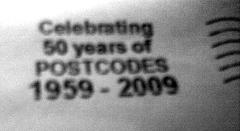As you
might have read, one of Debians slightly important machines had some hardware trouble.
Before I get into more details of this story, let me say thank you to all the people who worked on this issue:
- The DSA (Debian System Administrators) team,
- the local admins at
Brown University Computer Science department.
I intentionally leave out the HP support here, I think their work in this issue was pretty suboptimal. While they do follow a certain schema, it took a bit long and the stunt with the technician not finding the replacement board and later on leaving without further notice wasn t all that great.
(Update: Just to clarify this: In general we are happy with HP and the hardware and relationship and all that stuff. And usually the support works pretty well, like for all the times we had to replace broken disks.)
Now, the story. This all started by us noticing something in ries kernel output telling about some trouble with the ram:
ries kernel: [168074.392016] Northbridge Error, node 0, core: -1
ries kernel: [168074.392186] K8 ECC error.
This was first noticed somewhere at the beginning of January. A DSA member then used the usual HP tools to check whats up, none of it reported an error. There wasn t much of an option left besides waiting what happens in the future. No support would do anything here.
Until March we did not have any trouble. But at the 14th of March this changed, as the HP tools now found a serious error, reporting
Status: DIMM is degraded for the third DIMM module. A support ticket was opened at this point and a replacement DIMM got sent out. Unfortunately the well known Mr. Murphy did look at this issue and so the wrong thing was sent out to the wrong place. Countdown continued and 10 days later the host decided to randomly lockup. And as HP servers have an Automatic Server Reset function in such cases, the whole machine rebooted. Not only once. Guess how much a filesystem likes such things when the machine is active. And for added fun a second DIMM got reported as broken, we now had DIMM #3 and #4 gone off.
A certain ping-pong with HP support later we asked the local admins to take out the broken DIMMs and then also to change the order in which the remaining DIMMs are arranged.
Unfortunately this did not help, the errors stayed. At this time we already turned off the services running on the machine and it mostly waited in the HP Insight Diagnostics test from HPs SmartStart CD. (And it always locked itself at 97% here).
The support asked us to try another round of work on the machine, which our DSA team and the local admins did. But as it already was the 30th of March and nothing helped, our DSA got a little more direct in asking for a working solution. Like replacing the board and sending a technician to look and fix the machine.
This was scheduled for the 1st of April, but turned out to not work as hoped. For some reason the technician was not able to find the board that was sent as replacement (no fault of our local admins!), so nothing happened the 1st of April except us getting a little upset.
DSA communicated this to HP support, asking for escalation and finally getting this fixed.
Our local admins could at last greet a HP technician on the 2nd of April then and he even had the replacement board with him, so he did his work there. He also confirmed that the two DIMMs mentioned above are faulty. For some reason he did not replace them, but left them outside of the machine. He also left the place without telling the Brown CS staff, so it wasn t the best performance he made.
Fortunately the machine was in a working state again,
only missing 2 of its DIMMs, 4Gb RAM. This has to be replaced by HP in the next days.
When the Brown CS staff found out the technician left without notice they enabled our DSA to access the ilo of the machine again, so they could get the machine back up. Of course the first run was the HP SmartStart stuff again, running a full test. It reported no error, pheeew. There had been a few more steps in getting the settings of the ilo correct again and running a full filesystem check on it, but somewhere in the night the machine was back up and ready for us FTPMasters and Release team to get the services back.
As the machine was back up in the middle of the night where I was sleeping, I did start my work somewhere this morning. At 10:25 CEST this started with a md5sum check of all files we have in our pool/ structure, ie. the Debian archive. We had 655k files to check, so it naturally took a while. Luckily we only found 32 broken files. Even better a set of them is already fixed, the rest of them is easily fixable with a set of binnmus the buildd people helpfully schedule, so not too much work involved in fixing this issue. Could have been worse. (Actually, when the first reboots happened, before the long downtime, we also had some broken logfiles, unreadable changes files and such things. But those I already fixed back then).
More or less in parallel to the md5sum check we also started the queue daemons again, to let our upload queues from the other hosts forward their files to the central queue on ftp-master, tested the triggers to the new buildd peoples machine and the release team
did a britney run. This took the first 5 hours (and a bit) of the process.
As a second step, and we are still in this, we started the processing of the incoming queue. Turned out we have to process 10gigabytes of new uploads, in a total of 1285 uploads. This process is still running at the time I write this blog post, having processed about 1100 uploads. A good 9 til 10 hours run, but this was expected. I actually thought it will take even longer.
When this is done I will go and have a manual dinstall run. That is, I will run every action a dinstall is usually doing by hand. And verify each step. Usually dinstall takes some 2 hours, manually it can take a bit more. Somewhere during this run a mirror push will also be done, a fairly huge one this time, with all those updates.
When this all works I will turn on FTPMaster cronjobs after this dinstall, or at latest tomorrow morning, as usual, and service is back as usual. As far as I know the release team plans to turn on their cronjobs tomorrow morning too, so this will all be nice then.
Apropos release: Please note what I wrote in my latest d-d-a mail:
As a sidenote from me: If you have a package that might be involved in
whatever transition to testing, or simply might get involved, it could
really help if you wait a day or two with the next upload, so the
release team can sort through all before you give them new trouble. If
in doubt, try mailing debian-release@lists.debian.org and ask. :)
So, thats it, enough annoyance with all those status bits here and there. I go leave you alone now. :)
 The government of Egypt has blocked
The government of Egypt has blocked  I decided last night to upgrade the firmware on my G1. I've been fairly happy with my lightly hacked Android 1.6 (basically the stock T-Mobile image rooted and with a couple of apps added) but I'm interested in whether Froyo will bring performance improvements and the office is now full of Desire users so I figured I'd install 2.1 to see if it was any good, and prepare for 2.2. I went for
I decided last night to upgrade the firmware on my G1. I've been fairly happy with my lightly hacked Android 1.6 (basically the stock T-Mobile image rooted and with a couple of apps added) but I'm interested in whether Froyo will bring performance improvements and the office is now full of Desire users so I figured I'd install 2.1 to see if it was any good, and prepare for 2.2. I went for 
 After some stability problems and an unresolvable PCI IRQ problem with my
After some stability problems and an unresolvable PCI IRQ problem with my 
 Two years ago,
Two years ago, 
 Somehow, I'm still lacking the optimal media player application. Many popular
ones are totally overloaded (e.g. amarok). Others like totem seems to be just
a minimalistic frontend for a particular backend.My current choice:
Somehow, I'm still lacking the optimal media player application. Many popular
ones are totally overloaded (e.g. amarok). Others like totem seems to be just
a minimalistic frontend for a particular backend.My current choice:
 Once there was a project called Debian and a Ganneff.... (unfortunately in German only....)
Once there was a project called Debian and a Ganneff.... (unfortunately in German only....)

 So after
So after  That s a postmark advert for Celebrating 50 years of POSTCODES 1959-2009 . So this is what Royal Mail does with some of the money it makes from its claimed monopoly on postcode databases: it spends it on ink to celebrate postcodes in the bit where they can t sell adverts.
After the postcode-takedown, I suggested deleting postcodes from all
That s a postmark advert for Celebrating 50 years of POSTCODES 1959-2009 . So this is what Royal Mail does with some of the money it makes from its claimed monopoly on postcode databases: it spends it on ink to celebrate postcodes in the bit where they can t sell adverts.
After the postcode-takedown, I suggested deleting postcodes from all  Yesterday was my first appearance as a sardine in Zurich s
public transport vehicles, as part of
Yesterday was my first appearance as a sardine in Zurich s
public transport vehicles, as part of 